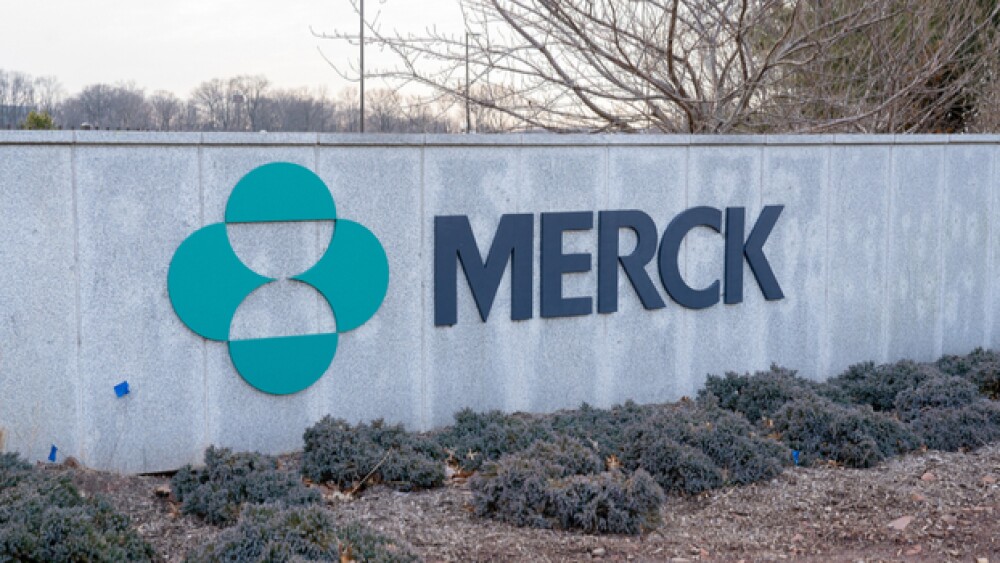The pilot program aims to develop an electronic system to identify and trace certain prescription drugs as they are distributed within the United States.
JHVEPhoto / Shutterstock
Merck is taking part in a federal pilot program to use blockchain to secure the pharmaceutical supply chain in the United States.
Pharma giant Merck, along with IBM, KPMG and Walmart, was tapped by the U.S. Food and Drug Administration (FDA) to take part in the program that will support the U.S. Drug Supply Chain Security Act (DSCSA) that addresses requirements to identify, track and trace prescription medicines and vaccines distributed within the United States. The companies will assist the FDA and other drug supply chain stakeholders to develop the “electronic, interoperable system” that will be used to identify and trace certain prescription drugs as they are distributed within the United States.
The Drug Supply Chain Security Act, which was passed in 2013, outlines supply chain requirements for drug manufacturers, repackagers, wholesale distributors, dispensers, and third-party logistics providers. The DSCSA pilot project program is intended to help identify and evaluate the most efficient processes to comply with and apply drug supply chain security requirements. The program will aid in identifying attributes the system will need for enhanced product tracing and verification, as well as electronic means to share the information. The pilot project involving the four companies is scheduled to be completed in the fourth quarter of 2019, and results are expected to be published in an FDA DSCSA program report. At that time, the project’s participants will evaluate next steps.
Craig Kennedy, Merck’s head of supply chain, said the company’s supply chain strategy, planning and logistics are “built around the customers and patients we serve.” Kennedy said a “reliable and verifiable” supply of medications helps improve the confidence of all stakeholders, in particular patients, while also “strengthening the foundation of our business.”
Blockchain is designed to establish a permanent record and may be integrated with existing supply chain and traceability systems. The network is expected to reduce the time needed to track and trace drug inventory, as well as allow timely retrieval of reliable distribution information. Additionally, the network is intended to increase accuracy of data shared among network members and help determine the integrity of products in the distribution chain, including whether products are kept at the correct temperature, the companies said in a joint announcement today. IBM, KPMG, and Walmart all have extensive experience in implementing blockchain solutions to help enhance the safety and traceability of products.
“Blockchain could provide an important new approach to further improving trust in the biopharmaceutical supply chain,” Mark Treshock, IBM Global Solutions Leader for Blockchain in Healthcare & Life Sciences, said in a statement. “We believe this is an ideal use for the technology because it can not only provide an audit trail that tracks drugs within the supply chain; it can track who has shared data and with whom, without revealing the data itself. Blockchain has the potential to transform how pharmaceutical data is controlled, managed, shared and acted upon throughout the lifetime history of a drug.”





